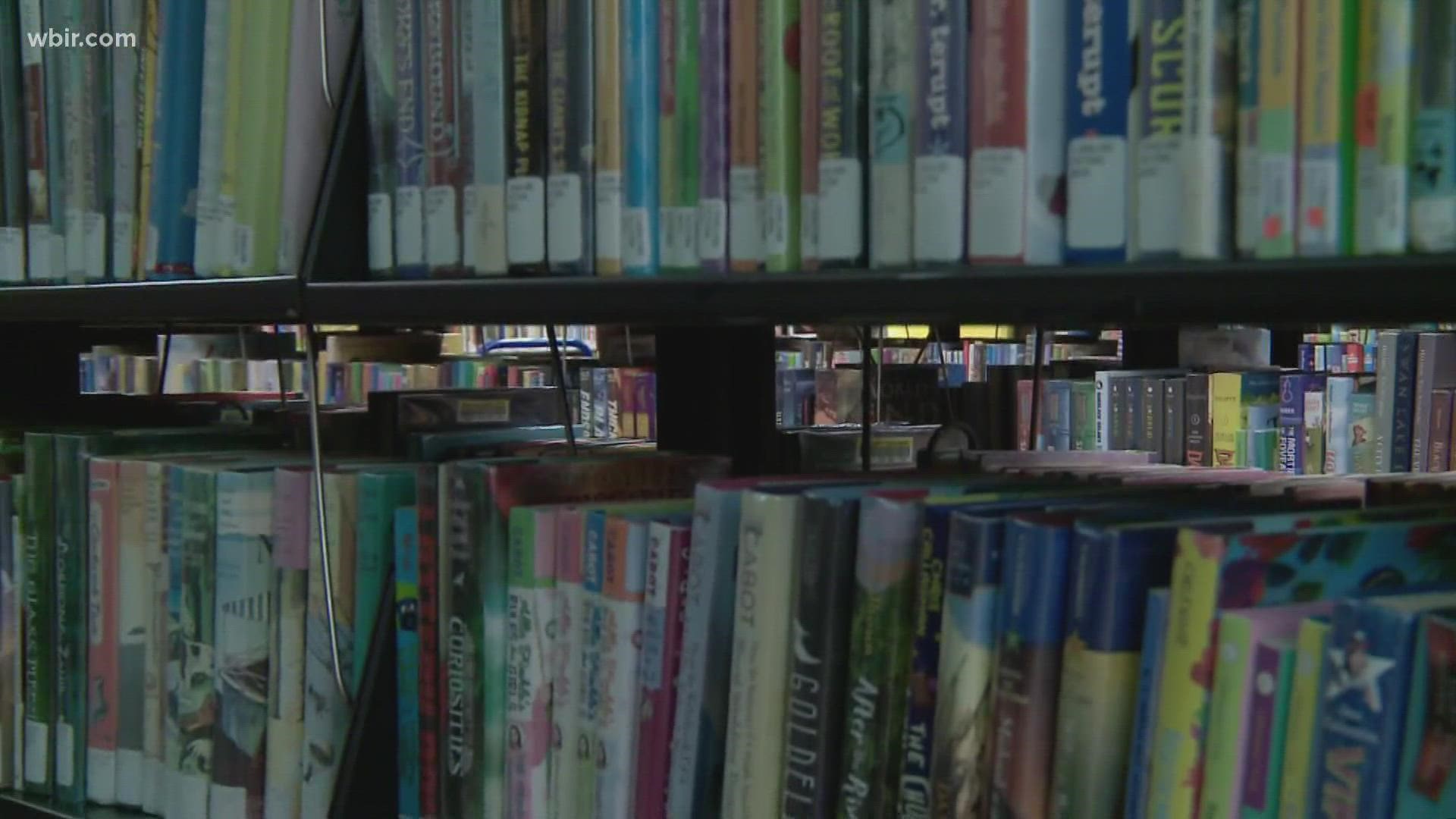NASHVILLE, Tenn. — During a discussion about a bill that would give Tennessee lawmakers more oversight over books available in school libraries, an East Tennessee lawmaker made comments that gained national attention.
Representative Jerry Sexton (R-Bean Station) was speaking about his bill that would add more oversight positions on the state's textbook commission. It would also give the commission authority to decide which books are appropriate for children by requiring schools to submit lists of materials in libraries that are then approved or denied.
"It broadens out how we're putting books in our school libraries. It gives the state textbook commission the final say of what goes in our libraries, so we can make sure we're putting age-appropriate books there," he said.
Another lawmaker, Representative John Clemmons (D-Nashville) asked him why the state would be the ones to determine which materials are appropriate for students.
"The librarians do have authority over that and they may be the ones signing off," said Sexton. "We really don't know. But what we do know is that there have been books that's been put in our libraries that are obscene in nature and certainly not age-appropriate for our children. Books that are pornographic, books that we could not read on regular television or even out here."
The bill was proposed amid national reports of efforts by Republican lawmakers to ban books discussing LGBTQIA+ identities.
It was also proposed after a national controversy over the McMinn County Board of Education's decision to remove Maus from the curriculum, an award-winning graphic novel about a Jewish man's experiences during the Holocaust.
Clemmons also asked Sexton to give a specific example of a book that was inappropriate for children and found in libraries. He said he believed there were books they considered inappropriate for children found in 93 counties across the state.
He also said he found "A Girl Named Pearl" in libraries, and claimed it was "sexual, in nature." Clemmons later started talking about how what one person could find inappropriate may not be inappropriate for others.
"Those that are adequately trained, and educated, and knowledgable enough to make those decisions are called librarians and we employ them and pay them with taxpayer money for a reason," said Clemmons. "I don't understand why we would be taking authority away from them."
He also asked what would happen to books that would be removed from libraries if they were deemed inappropriate.
"I don't have a clue, but I would burn them," Sexton said.
"That's what I thought," Clemmons said.
Representative Gloria Johnson (D - Knoxville) then asked Sexton how many people would be on the textbook commission who have backgrounds in child development.
"I don't really know but I can tell you this. My momma raised ten kids and she had none of that training and she did a great job," Sexton said. "I don't know of a parent anywhere that has to go to school to learn how to be a parent. I think we use common sense, to know what is appropriate and inappropriate."
Johnson said school librarians usually use The Miller Test for determining whether a book is too obscene to place on shelves. It is named after the U.S. Supreme Court's decision in Miller v. California in 1973, a case where a man sent explicit pictures and drawings to the manager of a restaurant.
Judge Miller then outlined guidelines for jurors in obscenity cases. They are listed below, according to Middle Tennessee State University.
- Whether the average person applying contemporary community standards would find the work, taken as a whole, appeals to the prurient interest;
- Whether the work depicts or describes, in a patently offensive way, sexual conduct specifically defined by the applicable state law; and
- Whether the work, taken as a whole, lacks serious literary, artistic, political or scientific value.
Johnson's full,l response to Sexton's comments is also below.
I understand and respect that your mom raised ten kids, that's awesome and [she] raised them the way that she thought was right. I appreciate that so much. However, some folks would let their kids read books that other folks wouldn't. And I don't believe a handful of people should be the determinant for what everyone in the state has available to them. Because for some kiddos, the only thing that they'll ever see, the only book that they'll ever see, is in a school library that they have access to. And whether it's about cultural differences or things like that, I absolutely respect a parent's right to stop their children from reading things they don't want to have them read. I find it completely unacceptable that we would determine what other kids could read in other families, but you can keep your child from reading things you don't think they should read.
The bill, HB 2666, went to a Conference Committee after the Senate did not concur on an amendment. That committee had to resolve differences between the Senate and House versions of the bill. Both the House and Senate adopted it.
"History hasn't looked fondly on those who ban books, or those who burn books," Johnson said.

